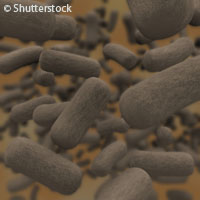Irish scientists discover how probiotics impact cell physiology
EU-funded researchers in Ireland have discovered that specially designed probiotics can modulate the physiology of host fat cells. Presented in the journal Microbiology, the study was funded in part by the BIOCLA ('Production of CLA [conjugated linoleic acid]-enriched dairy products by natural means') project, which clinched almost EUR 1.7 million under the EU's Fifth Framework Programme (FP5). The findings offer new insight into how specialised probiotics could keep disorders at bay and lead to new treatments. The experts from Ireland's Alimentary Pharmabiotic Centre (APC) at University College Cork and Teagasc Moorepark Food Research Centre engineered a strain of Lactobacillus to yield a molecule called CLA. They found a significant change in the composition of fat tissue in tested mice after they ingested this engineered bacterial strain. Thus, ingesting live bacteria can play a critical role in metabolising remote sites in the body, the team concludes. Various bacteria produce a number of versions of the fatty acid CLA. According to the researchers, one type, called t10, c12 CLA, is linked to decreased body fat in both humans and animals. This particular type can also slow down the growth of colon cancer cells, which could result in the tumour's death. But only some types of bacteria, such as Propionibacterium acnes (P. acnes, the bacterium that triggers acne), produce t10, c12 CLA. For the purposes of their study, the researchers transferred an enzyme-encoding gene from P. acnes to the Lactobacillus strain, which subsequently produced t10, c12 CLA. The experts said Lactobacillus strains are commonly found in normal gut flora and probiotic products, adding that the level of t10, c12 CLA in the mice's fat tissue increased fourfold when they ingested this recombinant probiotic. Their findings showed that gut microbes affects the host metabolism, especially fat composition. Commenting on the findings, study leader Dr Catherine Stanton from APC and Teagasc Moorepark Food Research Centre said: 'CLA has already been shown to alleviate non-alcoholic fatty liver disease that often accompanies obesity. Therefore, increasing levels of CLA in the liver by ingestion of a probiotic strain is of therapeutic relevance. Furthermore, fat is not an inert layer around our bodies, it is active and proinflammatory and is a risk factor for many diseases, including cancers. The work shows that there is potential to influence this through diet-microbe-host interactions in the gut.' The team also discovered that microbially produced CLA could lessen the viability of colon cancer cells by 92%. 'It is possible that a CLA-producing probiotic may also be able to keep colon cancer cells in check,' Dr Stanton said. 'All our findings to date demonstrate that the metabolism of gut bacteria can modulate host cell activity in ways that are beneficial to the host,' she added. 'We need to further investigate the effects of CLA-producing bacteria on human metabolism, but our work so far certainly opens up new possibilities for the use of probiotics for improvement of human health.'For more information, please visit: Alimentary Pharmabiotic Centre at University College Cork:http://www.ucc.ie/research/apc/content/Teagasc Moorepark Food Research Centre:http://www.teagasc.ie/research/MFRC.aspMicrobiology:http://mic.sgmjournals.org/BIOCLA project:http://www.teagasc.ie/research/dprc/biocla/
Countries
Ireland



